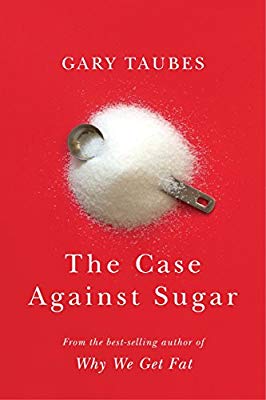I have always wondered why we consider sweet taste as superior to other tastes in general ( as I don\’t have a sweet tooth and have always had preference to sour/ salty/ spicy foods). This book not only answered that question for me but also gave me an idea about how we have come to this point where we consider sweet taste as an undisputed King of tastes.
Gary Taubes, in this well researched book traces the history of sugar from its first appearance and it\’s subsequent dissemination all over the world to the current scenario where it is indispensable part of diet in any country/culture. He also shows how wherever sugar made its appearance in day-to-day diet of people, in those populations epidemics of diabetes/obesity/hypertension/ heartdiseases invariably followed. While doing so he also busts a few myths with scientific evidence
- that sugar is harmless substance that is at worst just \”empty calories\”
- that we get obese by eating more calories than we burn( which according to him has its foundation in nutrition science of 1920-1930s ignoring the entire research about metabolism, hormones and their regulation, genetics etc that followed it)
- that dietary fat is main culprit in our diet which leads to various lifestyle diseases(which according to this book is a hypothesis not proven clearly by scientific studies, yet popularized by various big names in medicine backed by bigger lobbies in sugar-associated industries)
This book also re-affirmed my belief that advertising and lobbying plays a very powerful and influencial part in deciding what gets on our plates, and this is especially true for children. It was very interesting to know the history of some foods. For example Coca-Cola was a variation of patent medicine having carbonated water, cocaine, kola nuts and alcohol, from which cocaine and alcohol were removed and sugar added to enhance taste. Ice cream was first invented to sell off unsold milk cream by adding sugar to it. Canned fruit juices were aggressively marketed as healthy food to get rid of surplus grapes during alcohol prohibition in US. And breakfast cereals were invented to aid digestion, but sugar-coated cereals in markets today are at best another version of candies.
The author\’s take on how sugar is main culprit in causing a cluster of related lifestyle diseases like diabetes/ obesity/ hypertension was an eye opener to me inspite of my medical background ( by virtue of which I know technical details of its metabolism in our body) because it forced me to see it from a completely different perspective and not just as a simple carbohydrate. It was very interesting to know how exactly sugar, especially it\’s fructose component causes insulin resistance leading to diabetes( considering I knew the detailed pathology it was still interesting because of the angle from which it was presented, which changed the entire view, doctors please note). Though I don\’t know how much of it is scientifically backed by studies, his take has forced me to read and research more about this topic. It has also made me to seriously consider reducing my sugar intake or atleast keep it as low as possible.
My only problem with this book is it\’s length. Why are writers in non-fiction today so keen to write a 300+ pages book when the same matter can easily be covered in 150-200 pages? Also is it necessary to quote one scientific paper after another with all technical details within the book and not as reference at the end considering it is a book meant for consumption of general public and not a scientific paper meant for a technical journal?
My final take: The case against unwarranted length of an otherwise compelling book; So if you don\’t mind the length and are interested to know more, pick up this book.
Picture credit: Amazon.com
